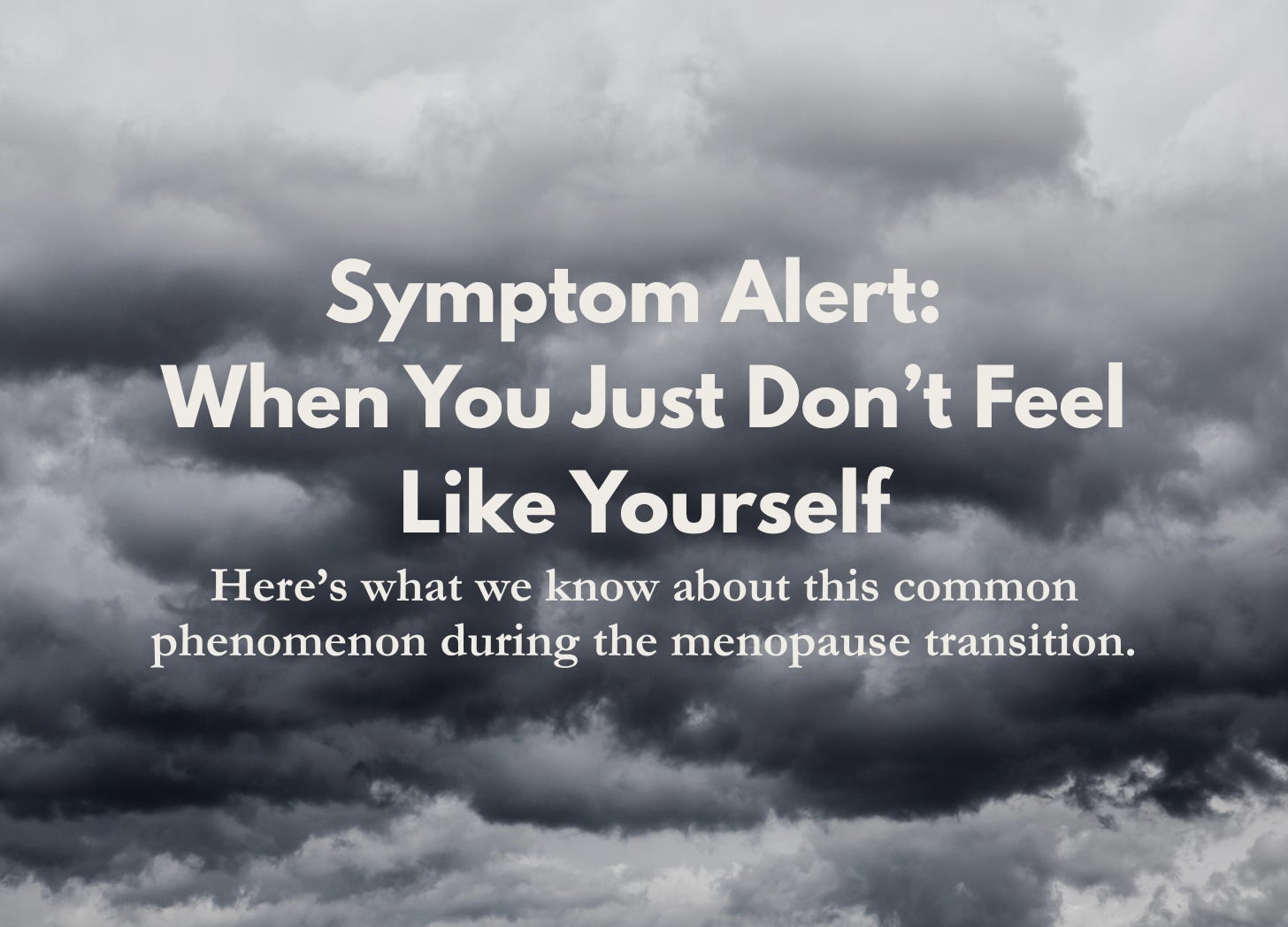Symptom Alert: When You Just Don’t Feel Like Yourself
Here’s what we know about this common phenomenon during the menopause transition.
When I think back over the last several years, I can easily identify periods of time - ranging from weeks to months - where I have not felt like myself. For me, these are times of poor sleep, low mood, low energy, higher anxiety, and feeling a little (or a lot) bit stabby.
I try to support my body in ways that will hopefully contribute to better sleep, better energy, better mental health. But I’m also coming to recognize that these periods of time will simply persist to one degree or another until the hormone pendulum swings yet again.
This phenomenon of “not feeling like myself” (NFLM) is actually something that menopause experts are working to understand so that clinicians can better care for the midlife women coming into their offices reporting that everything just feels … off.
Last year the amazing folks over at Women Living Better published an article in the journal Menopause where they worked to better define what perimenopausal women mean when they say they don’t feel like themselves. And the results were fascinating.
The average age of the 1617 study participants was 47.3 years old and 63% of the participants reported not feeling like themselves for 50% or more of the time over the past 3 months.
Only 12% of the participants reported not experiencing NFLM at all in the previous 3 months. This means that 88% of the participants experienced periods of time where they didn’t feel like themselves in the three months prior to the study. EIGHTY-EIGHT PERCENT!!!
Of the 61 symptoms participants were asked about, the symptoms most strongly associated with NFLM were fatigue, overwhelm/less ability to cope, low feelings, anxiety, irritability, a harder time making decisions, forgetfulness, tearfulness/crying and worrying more.
(Um, does anyone else feel very seen right now after reading that symptom list? 🙋♀️)
Interestingly, quintessential menopause symptoms like hot flashes and vaginal dryness that typically appear in late perimenopause had the lowest correlation to NFLM. Might NFLM be a phenomenon more associated with early perimenopause when hot flashes and vaginal dryness are less likely to show up? It’s something to consider.
Either way, it’s important for both clinicians and midlife women to understand that “not feeling like myself” is really common in perimenopause, and for many women might be the first sign that they’re actually in perimenopause.
The next step: identifying effective ways for perimenopausal women to manage short or long-term bouts of not feeling like themselves. I’ll be brainstorming ideas in next week’s newsletter.
So now I want to know: have you experienced periods of time where you just haven’t felt like yourself? And have you discovered anything that has helped you cope? Send me an email or leave a comment below - I’d love to hear from you.
xo, Rebecca



